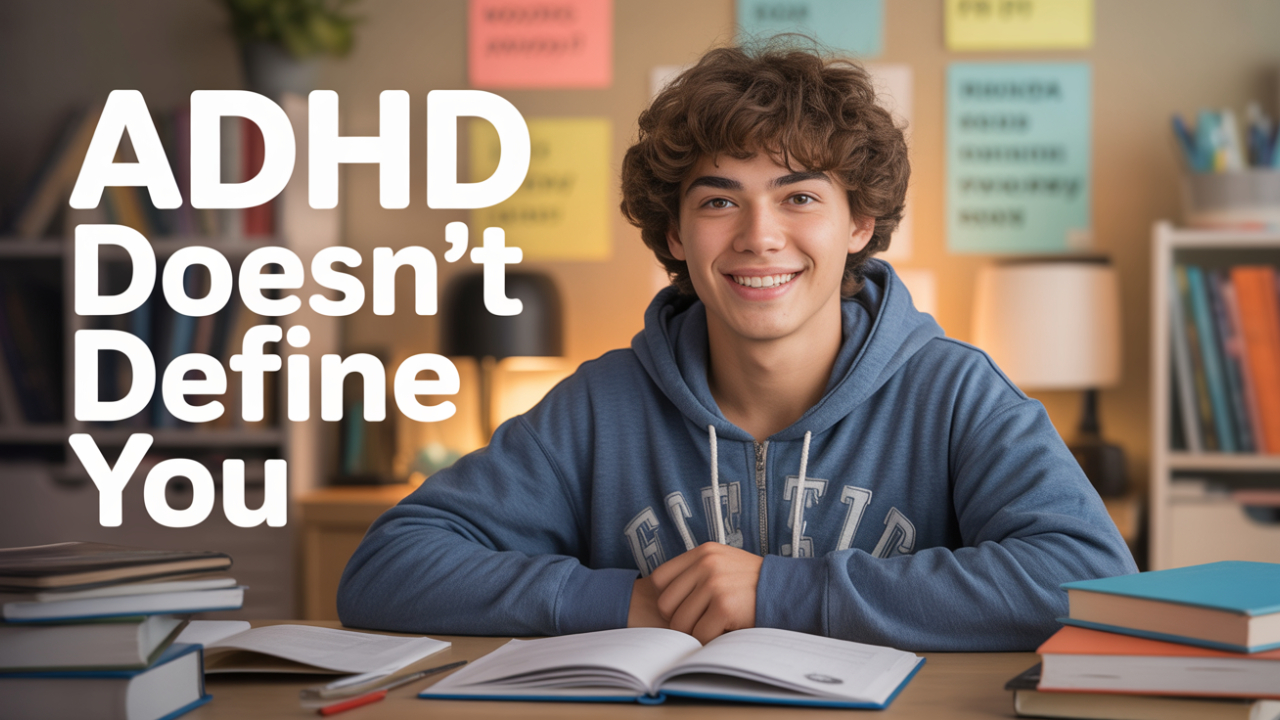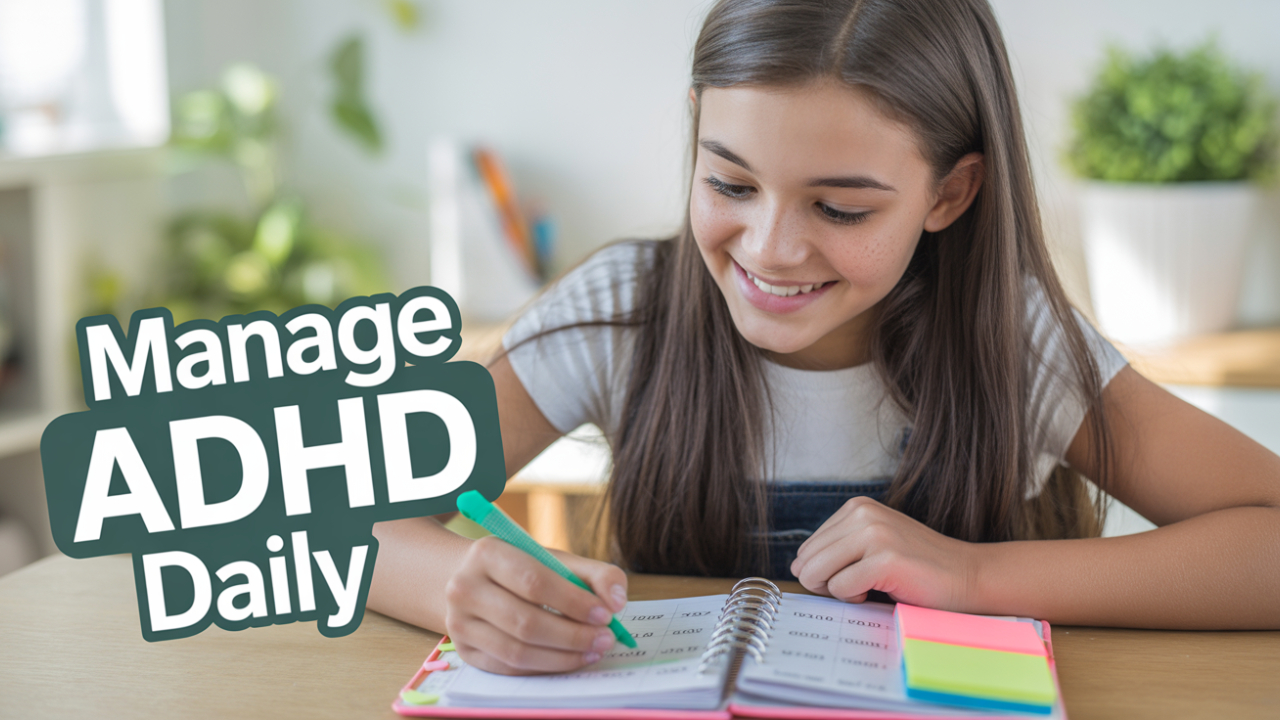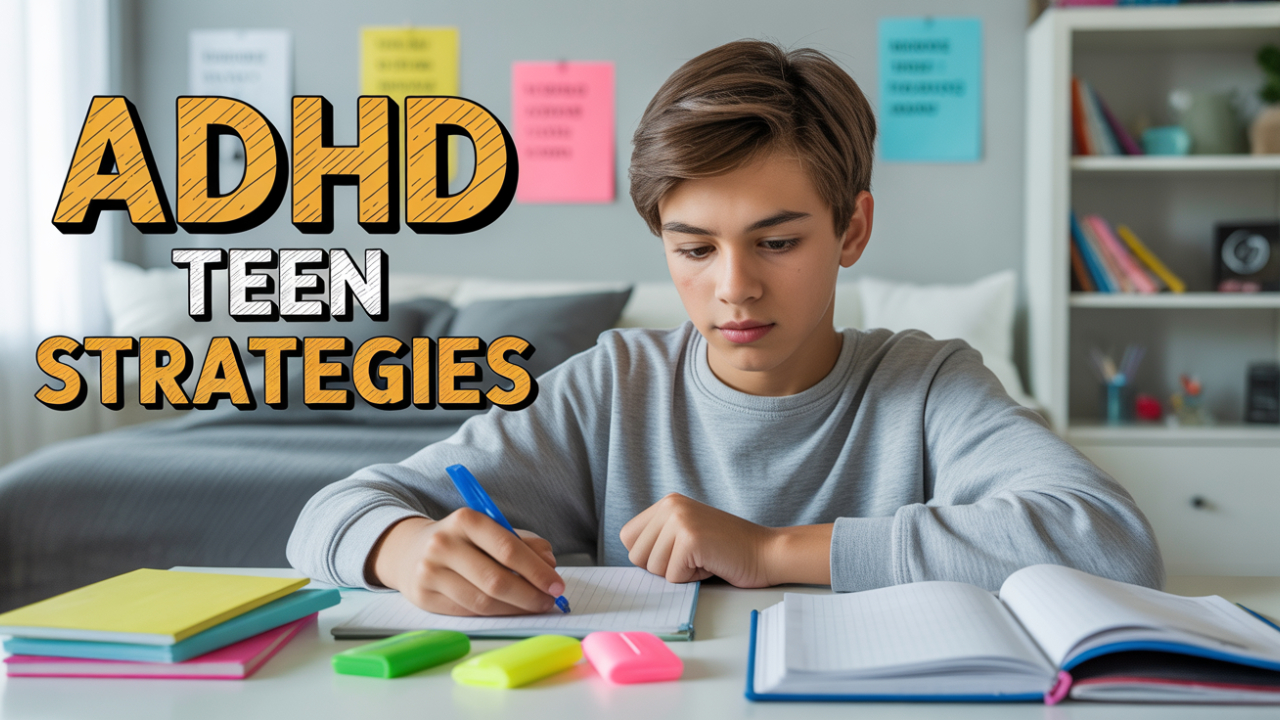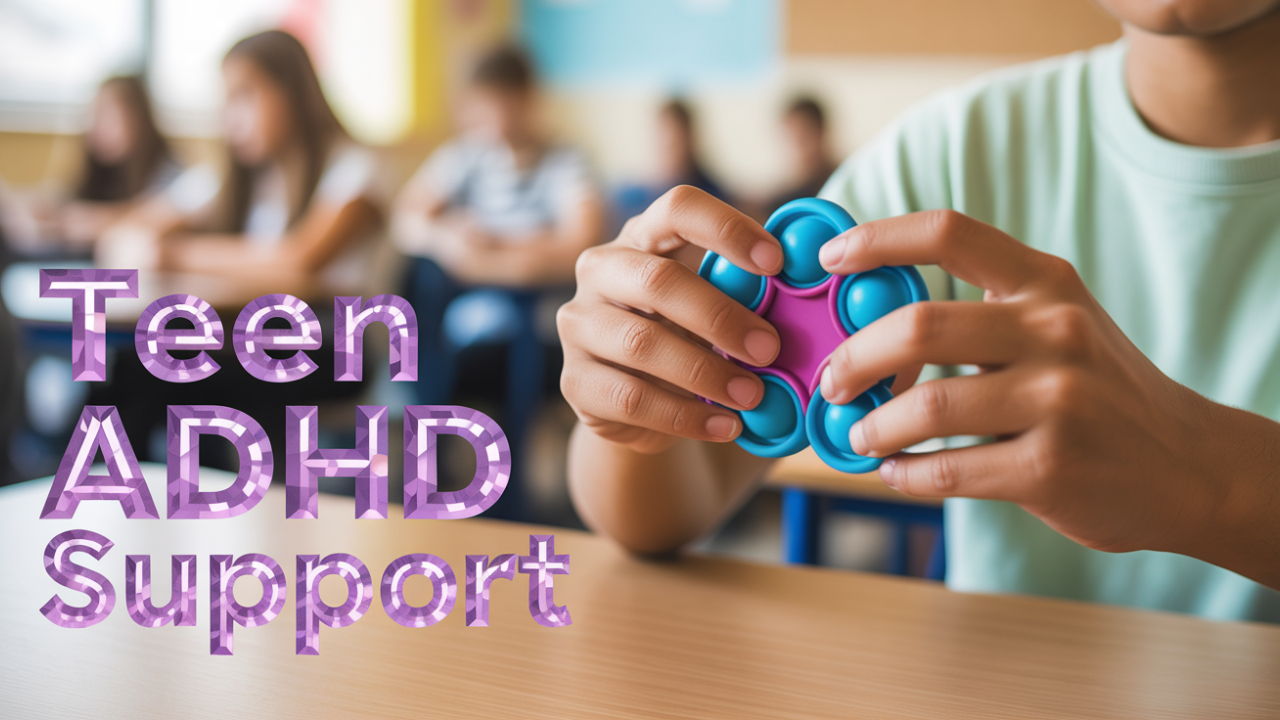Teen ADHD Support
Attention-Deficit/Hyperactivity Disorder (ADHD) affects how teens focus, manage time, and control impulses. It can impact school performance, friendships, and self-esteem. While ADHD can present challenges, with the right support, teens can learn to manage symptoms and thrive. At Adolescent Mental Health in Orange County, we offer guidance, therapy, and resources to help teens and families navigate ADHD together.
Understanding ADHD in Teens
ADHD is a neurodevelopmental disorder that typically begins in childhood and can continue into adolescence and adulthood. Teens with ADHD may struggle with attention, organization, and emotional regulation. These difficulties are not due to laziness or lack of intelligence—they stem from differences in brain function and development.
There are three main types of ADHD:
Predominantly Inattentive Presentation – Teens may have trouble focusing, following directions, or completing assignments.
Predominantly Hyperactive-Impulsive Presentation – Teens may act without thinking, have difficulty staying still, or interrupt others frequently.
Combined Presentation – Teens display both inattentive and hyperactive-impulsive symptoms.
Understanding the type and severity of ADHD helps guide the best treatment and support approach.

Common Symptoms in Teens
ADHD symptoms in teens may include:
Difficulty focusing on schoolwork or conversations
Frequent daydreaming or zoning out
Forgetting assignments or misplacing items
Impulsively speaking or acting without considering consequences
Struggling to stay seated in class or during activities
Trouble starting or finishing tasks
Emotional outbursts or frustration over small challenges
Poor time management and frequent lateness
Because adolescence is already a time of change, ADHD symptoms may intensify as school demands increase and social pressures grow.
The Emotional Impact of Teen ADHD
ADHD is more than an academic issue—it can affect a teen’s emotional health. Many teens with ADHD face:
Low self-esteem due to criticism from peers, teachers, or family
Anxiety about falling behind in school
Frustration with rules or routines they find hard to follow
Social challenges when friends misunderstand their behavior
If these feelings are not addressed, they can lead to depression, isolation, or even substance use as a coping method. Early support is key to preventing these secondary struggles.

How Parents Can Support a Teen with ADHD
Parents play a vital role in creating a supportive environment. Here are effective strategies:
1. Maintain Structure and Routines
Teens with ADHD often do best with consistent schedules. Having set times for homework, meals, and bedtime helps reduce stress and confusion.
2. Use Clear, Direct Communication
Give short, specific instructions rather than vague directions. For example, instead of saying “Get ready for school,” say “Put your homework in your backpack and put on your shoes.”
3. Break Tasks into Smaller Steps
Large assignments can overwhelm teens with ADHD. Breaking them into manageable pieces makes them easier to complete.
4. Encourage Positive Habits
Promote sleep, physical activity, and balanced nutrition. Exercise can improve focus, and a healthy diet can stabilize energy levels.
5. Focus on Strengths
ADHD comes with unique strengths like creativity, problem-solving, and high energy. Recognizing these qualities can boost your teen’s confidence.
Academic Support for Teens with ADHD
School can be a major source of stress for teens with ADHD. Parents, teachers, and counselors can work together to create accommodations that help students succeed.
Common School Accommodations
Extra time on tests or assignments
A quiet space for exams
Preferential seating near the teacher
Access to class notes or recorded lectures
Frequent check-ins from teachers or counselors
These supports can be part of an Individualized Education Program (IEP) or a 504 Plan, which legally ensures students receive accommodations that meet their needs.

The Role of Professional Treatment
Treatment for teen ADHD often involves a combination of therapy, education, and sometimes medication. Each treatment plan should be tailored to the teen’s individual needs.
Therapy
Cognitive Behavioral Therapy (CBT) helps teens develop coping strategies, improve organization, and manage emotions.
Behavioral Therapy focuses on reinforcing positive behaviors and reducing disruptive ones.
Family Therapy helps improve communication and understanding between parents and teens.
Medication
For some teens, ADHD medications can significantly improve focus and reduce impulsivity. Options include stimulant and non-stimulant medications, which should always be prescribed and monitored by a qualified medical professional.
Coaching and Skills Training
ADHD coaches can help teens build time-management skills, learn organization strategies, and practice problem-solving.
Social Support and Peer Understanding
Teens with ADHD may feel different from their peers, which can lead to isolation. Encouraging them to join activities that match their interests can provide opportunities for social growth. Sports, art, music, and volunteer work can all boost self-esteem.
Peer education is also important. When classmates understand ADHD, they are less likely to misinterpret behaviors and more likely to offer support.
Helping Teens Build Self-Advocacy Skills
As teens grow older, they will need to take more responsibility for managing ADHD. Teaching self-advocacy helps them:
Understand their diagnosis and how it affects them
Communicate their needs to teachers and employers
Access resources and accommodations independently
Practicing these skills in high school prepares teens for college or the workplace.
When to Seek Professional Help
If your teen’s ADHD symptoms are causing major problems at school, home, or socially, it’s time to seek professional help. Signs include:
Declining grades despite effort
Frequent arguments with family or friends
Ongoing sadness, anxiety, or withdrawal
Risky or impulsive behaviors that could cause harm
Getting help early can prevent long-term difficulties and give your teen the tools to succeed.
How Adolescent Mental Health in Orange County Can Help
At Adolescent Mental Health, we provide specialized ADHD support for teens. Our services include:
Comprehensive evaluations to confirm diagnosis
Individual therapy sessions tailored to ADHD challenges
Family counseling to improve communication
Coordination with schools to support academic success
Skills training for organization, time management, and emotional control
We believe every teen with ADHD has the potential to thrive with the right strategies and support.
Final Thoughts
Supporting a teen with ADHD is a journey that requires patience, understanding, and the right tools. With consistent routines, school accommodations, professional treatment, and emotional encouragement, teens can learn to manage their symptoms and build a bright future. Parents and caregivers who work alongside mental health professionals can make a life-changing difference.
Frequently Asked Questions
1. What are the first steps if I think my teen has ADHD?
If you suspect ADHD, start by tracking behaviors such as difficulty focusing, impulsivity, or restlessness. Share these observations with your teen’s doctor or a mental health professional. They can perform an evaluation, which may include questionnaires, school input, and medical history review. Early diagnosis allows you to access therapy, school accommodations, and strategies to help your teen manage symptoms.
2. How can I support my teen with ADHD at home?
Create predictable routines, use clear and concise instructions, and break tasks into smaller steps. Encourage healthy habits like regular exercise, balanced nutrition, and enough sleep. Recognize and praise your teen’s strengths to build confidence. Patience and consistency are key when supporting a teen with ADHD.
3. Will ADHD affect my teen’s school performance?
ADHD can impact focus, organization, and time management, which may lead to academic struggles. However, with the right accommodations—such as extra time on tests, structured schedules, and teacher check-ins—many teens with ADHD excel in school. Partnering with educators ensures your teen receives the tools they need to succeed.
4. Can therapy help a teen with ADHD without medication?
Yes. Many teens benefit from therapy alone, especially Cognitive Behavioral Therapy (CBT) and behavioral strategies that improve organization, emotional regulation, and problem-solving. Some families choose to combine therapy with medication, while others rely solely on skill-building and lifestyle changes. The best approach depends on the teen’s needs and preferences.









